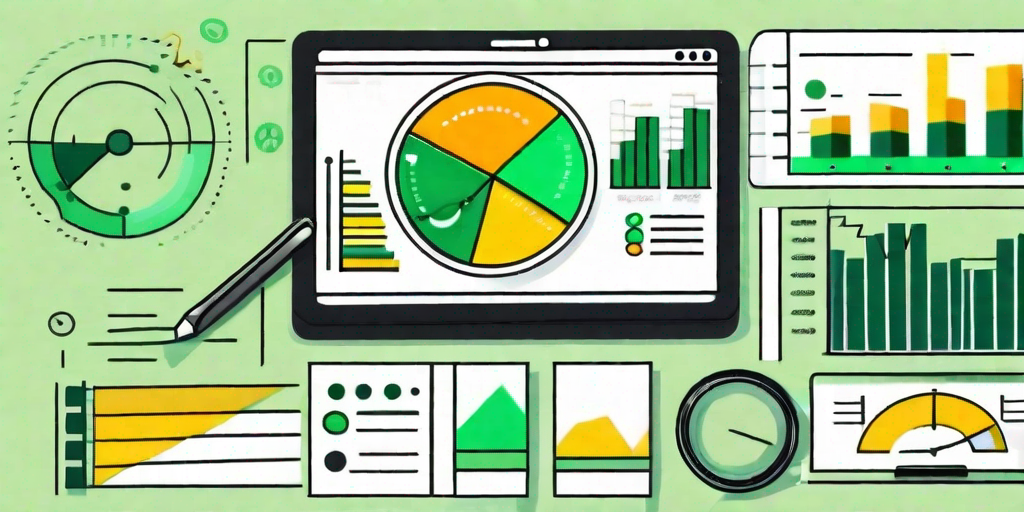Introduction to AI and technology learning
Artificial Intelligence (AI) and technology learning are transforming our world at breakneck speed. As we embrace this digital era, the need for understanding these concepts becomes crucial. From enhancing problem-solving skills to opening doors in various industries, AI and technology education empower minds like never before.
Imagine a future where creativity meets innovation, driven by intelligent algorithms and data analysis. This isn’t just a fantasy; it’s happening now. Schools, workplaces, and even personal lives are increasingly influenced by advancements in AI. With such rapid change comes an exciting opportunity: to be part of this journey towards knowledge that shapes tomorrow’s landscape.
Whether you’re a student eager to learn or a professional seeking advancement, diving into AI and technology is essential today. Let’s explore how you can harness the power of these tools to elevate your potential!
Benefits of AI and technology learning
AI and technology learning offers a myriad of benefits that empower individuals in various ways.
First, it enhances critical thinking skills. Engaging with complex algorithms or programming languages fosters problem-solving abilities essential in today’s tech-driven world.
Second, this type of learning opens doors to new career opportunities. As industries increasingly adopt AI technologies, those equipped with relevant knowledge become highly sought after.
Moreover, it promotes creativity. Understanding technological tools allows learners to innovate and develop unique solutions across multiple domains.
Additionally, AI can personalize the educational experience. Adaptive learning platforms cater content to individual needs, ensuring everyone learns at their own pace.
Embracing these fields encourages lifelong learning habits. The rapid evolution of technology means there is always something new to explore and master.
How AI is changing the job market
AI is reshaping the job market in profound ways. Traditional roles are evolving as automation takes over repetitive tasks. This shift allows employees to focus on creativity and critical thinking, skills that machines can’t easily replicate.
New job categories are emerging alongside AI technology. Data analysts, machine learning engineers, and AI ethicists are all in demand now. Businesses seek individuals who can harness these tools effectively.
However, this transformation poses challenges too. Many workers face displacement as their roles become obsolete. Upskilling and reskilling have never been more crucial for career longevity.
Companies now prioritize adaptability in hiring practices. A willingness to learn new technologies is a valuable asset that candidates must showcase.
The integration of AI also influences remote work dynamics, enabling global collaboration while creating competition across borders. Those who embrace change will likely find opportunities where others see obstacles.
The role of education in preparing for the future of AI
Education plays a pivotal role in shaping the future of AI and technology learning. As advancements occur at lightning speed, curricula must adapt to include essential skills that empower students.
Integrating AI concepts into various subjects can spark interest and curiosity. Students should not only learn how to use technology but also understand its underlying principles. This approach fosters critical thinking and creativity.
Moreover, hands-on experiences with AI tools enhance real-world problem-solving abilities. Collaborations between schools and tech companies can provide valuable resources for interactive learning.
Teachers need ongoing professional development to stay abreast of new technologies and methodologies. By equipping educators with knowledge, they can inspire the next generation to embrace innovation confidently.
Encouraging interdisciplinary projects allows students to explore the vast implications of artificial intelligence across sectors like healthcare, finance, or environmental science. This broadens their perspective on potential career paths while highlighting the importance of ethical considerations in technology applications.
Incorporating AI and technology learning in schools
Schools must embrace AI and technology learning to prepare students for the future. Integrating these subjects into curriculums can spark curiosity and foster innovation.
Teachers can begin by incorporating coding classes or robotics clubs, making the experience hands-on. Engaging students with interactive projects helps them grasp complex concepts more easily.
Partnerships with tech companies can provide resources and mentorship opportunities. Guest speakers from the industry can inspire students, offering real-world insights into their careers.
Incorporating AI in subjects like math or science enhances critical thinking skills. Students learn not just how to use technology but also how it impacts various fields.
Access to online platforms enables personalized learning experiences. Students can progress at their own pace while exploring topics that interest them most.
Creating a culture of experimentation encourages creativity in problem-solving. When schools adopt this approach, they cultivate adaptable minds ready for an ever-evolving job market.
Tools and resources for individuals to learn about AI and technology
Learning about AI and technology has never been more accessible. A plethora of online platforms cater to diverse learning preferences.
Websites like Coursera and edX offer courses from top universities. You can dive deep into subjects, ranging from machine learning to data science. Many are free or low-cost, making them budget-friendly.
YouTube is another treasure trove for visual learners. Channels dedicated to tech tutorials break down complex topics in digestible formats.
Books also remain a powerful resource. Titles by thought leaders in AI provide insights that online courses might miss.
For hands-on experience, GitHub allows users to explore real-world projects. Engaging with communities on forums like Reddit or Stack Overflow can also enhance understanding through discussion.
Apps such as Duolingo now even include tech-related language learning modules! Embracing these tools empowers individuals on their journey into the fascinating world of AI and technology learning.
Ethical considerations surrounding AI and technology learning
As AI and technology learning expand, ethical considerations become increasingly crucial. These advancements can reshape our society in profound ways.
One major concern is data privacy. Collecting vast amounts of personal information for training algorithms raises questions about consent and security. Who owns this data? How is it used?
Bias is another pressing issue. AI systems often reflect the biases present in their training data, potentially perpetuating discrimination and inequality. Addressing these biases requires constant vigilance.
Moreover, the implications for employment must be considered. As machines take over various tasks, workers may face job displacement without adequate support or retraining opportunities.
Transparency surrounding AI decision-making processes remains essential to build trust among users and stakeholders alike. Educators and developers must prioritize ethics alongside innovation to ensure a responsible approach to AI learning initiatives.
Success stories of individuals who have utilized AI and technology learning
Sarah, a former school teacher, embraced AI and technology learning after attending a workshop. She developed an app that helps students with special needs engage more effectively in the classroom. Her innovation has transformed educational experiences for many children.
Then there’s Mark, who was stuck in an entry-level job. He took online courses on machine learning and data analytics during his evenings. With newfound skills, he landed a role at a leading tech company as a data scientist.
And let’s not forget Lisa, who utilized AI tools to streamline her small business operations. By automating tasks like inventory management and customer service inquiries, she doubled her productivity within months.
These stories highlight how embracing AI and technology can lead to personal growth and professional success. Each individual carved their unique path through determination and knowledge gained from dedicated learning efforts.
Challenges and solutions for implementing AI and technology
Implementing AI and technology learning comes with its own set of challenges. One major hurdle is the lack of access to resources, particularly in underfunded schools. Many institutions struggle to provide the necessary tools and infrastructure for effective learning. This gap can hinder students from gaining vital skills needed for the future.
Another challenge lies in curriculum development. Developing a comprehensive program that keeps pace with rapidly advancing technologies requires constant updates and training for educators. Without regular professional development, teachers may feel unequipped to impart knowledge about AI and technology effectively.
There’s also a significant concern over equity in education. Not all students have equal opportunities to engage with AI and tech learning experiences, leading to disparities in skill acquisition across different socio-economic backgrounds.
To address these issues, collaboration between governments, educational institutions, and tech companies is essential. Increased funding can help bridge resource gaps while fostering partnerships can lead to innovative programs tailored for diverse student needs.
Additionally, creating inclusive policies ensures that every student has access to quality education regarding AI and technology learning regardless of their background or location.
By tackling these challenges head-on through strategic solutions, we move closer toward empowering minds through robust AI and technology learning initiatives—preparing individuals not just for jobs but also for life in an increasingly digital world.





